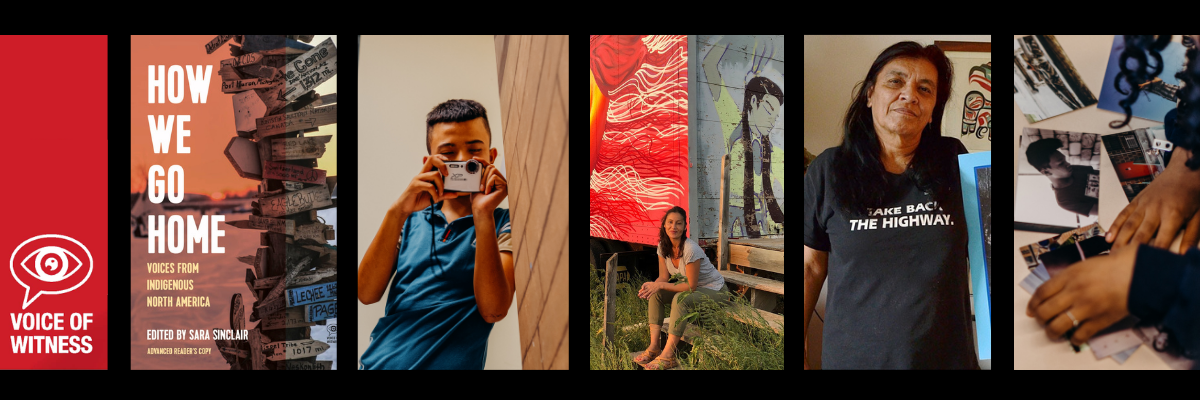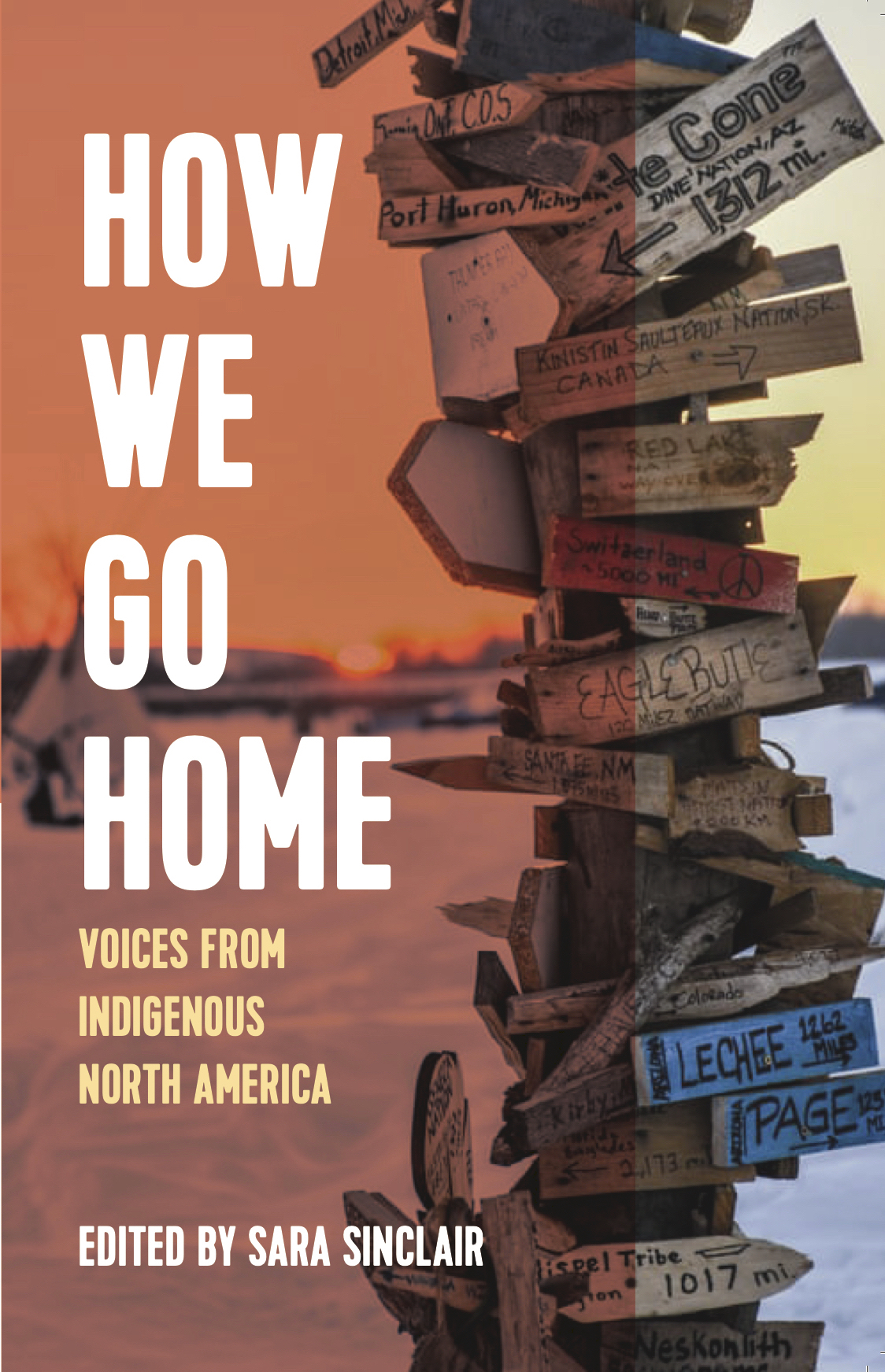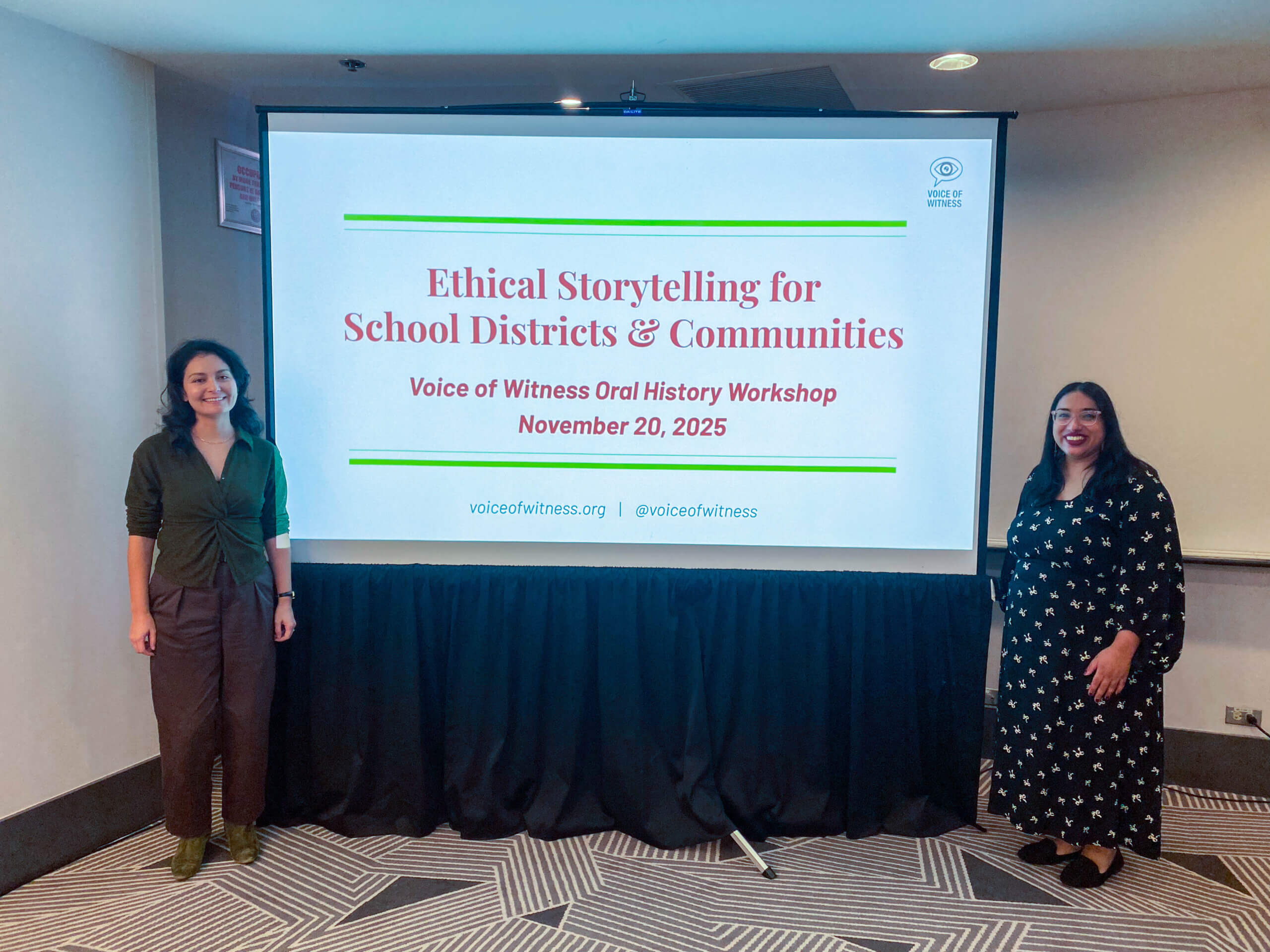
Needless to say, 2020 has been a difficult year. In the face of immense challenges, we are proud of what Voice of Witness was able to accomplish in collaboration with our dedicated network of narrators, editors, educators, students, and community partners.
As we reflect on 2020—the urgency of the Black Lives Matter movement, a high-stakes presidential election, and the ongoing impacts of the COVID-19 pandemic—we recognize the heightened need for powerful storytelling that advocates for and advances human rights by centering the voices of those most impacted.
VOW’s narrator communities—people impacted by issues of migration, displacement, and the criminal justice system—have been, unsurprisingly, hit hard by the events of this year, making the need to amplify their perspectives and experiences all the more critical. Teachers and students in our network have also been acutely affected by the pandemic, facing new challenges of virtual learning on top of existing educational inequities and limited resources.
At Voice of Witness, our staff worked hard to pivot our educational services to an online format so we could continue delivering culturally relevant, arts-based learning opportunities that advance empathy, critical thinking, communication, and social and emotional learning for students. We provided virtual content and direct support for underserved students and educators; developed online oral history webinars and workshops; and engaged in a number of exciting new storytelling consultancies with organizations around the country.
Voice of Witness launched Unheard Voices of the Pandemic, a rapid-response storytelling project highlighting the disproportionate impact of the pandemic on marginalized communities. Through powerful first-person stories published in high-profile media outlets, VOW narrators were able to reach hundreds of thousands of readers directly, calling attention to systemic disparities only exacerbated by COVID-19.

VOW also released a new oral history collection, How We Go Home: Voices From Indigenous North America, sharing contemporary first-person stories in the long and ongoing fight to protect Native land, rights, and life. The book quickly sold out of its first printing and our corresponding free lesson plans have already received a record number of downloads—demonstrating the urgent need for Indigenous perspectives and resources in classrooms and communities. To further highlight the vital stories and issues featured in How We Go Home, Voice of Witness organized an ongoing event series in partnership with grassroots Indigenous advocates. For more ideas on ways to support Native communities during this difficult time and beyond, check out this article from VOW editor Sara Sinclair in The Guardian.
All of these efforts reflect our ongoing commitment to amplifying unheard voices. The challenges this year have been vast, and our work is needed now more than ever. These are not just stories—they are calls to action for all of us to mobilize around policies, programs, and new ideas that transform our communities for the better.
We are working hard on exciting developments in our forthcoming projects, including initiatives focused on the aftermath of Hurricane María and the politics of territory status and forced austerity in Puerto Rico; refugee resettlement in the Appalachian region; and the difficult process of reentry after incarceration in the Bay Area.
As we look toward 2021, the Voice of Witness team is committed to bringing you more human rights storytelling, and we look forward to everything we will achieve together next year.




